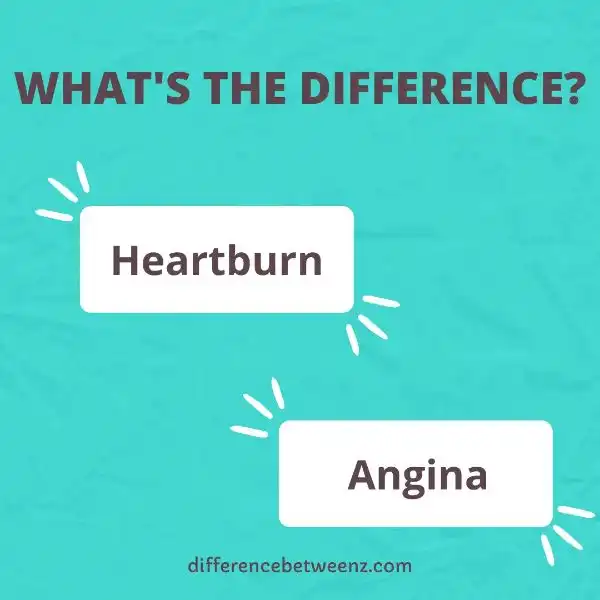Almost everyone has heard of heartburn, but not everyone is familiar with angina. While the two conditions may share some common symptoms, they are actually quite different. In this blog post, we will take a closer look at the difference between heartburn and angina, including their causes and treatments. Please keep in mind that this information is not intended to replace the advice of a healthcare professional; if you are experiencing any chest pain, please see your doctor right away.
What is Heartburn?
Heartburn is a common condition that causes a burning sensation in the chest. It is caused by acid reflux, which occurs when stomach acid flows back up into the esophagus. Heartburn can be mild or severe, and it may occur more frequently after eating. There are several treatments available for heartburn, including over-the-counter antacids and prescription medications. Some lifestyle changes, such as avoiding spicy foods and eating smaller meals, can also help to reduce the frequency of heartburn.
What is Angina?
- Angina is a type of chest pain that occurs when the heart muscle doesn’t get enough oxygen-rich blood. Angina may feel like pressure or a squeezing pain in your chest. The discomfort also can occur in your shoulders, arms, neck, jaw, or back. Angina pain may even feel like indigestion.
- Most people with stable angina typically experience episodes of chest pain when they’re exerting themselves physically or when they’re under emotional stress. Unstable angina is a more serious condition that occurs without physical exertion or emotional stress and often awakens you from sleep.
- It generally indicates reduced blood flow to your heart and requires prompt medical attention to prevent a heart attack. An episode of unstable angina lasts longer than stable angina and doesn’t respond to rest or medications used to treat stable angina.
Difference between Heartburn and Angina
- Heartburn is a burning sensation in your chest that can extend to your neck, jaw, or stomach. It’s caused by stomach acid rising up into your esophagus. Angina is chest pain or discomfort that occurs when your heart muscle doesn’t get enough oxygen-rich blood. It may feel like pressure or squeezing in your chest.
- The main difference between heartburn and angina is that heartburn is not related to heart disease, while angina is a symptom of heart disease. Both heartburn and angina can cause similar symptoms, such as chest pain and shortness of breath.
- However, the pain from angina usually comes on with physical activity or emotional stress, while the pain from heartburn is often worse after eating or lying down.
Conclusion
Heartburn and angina are two different conditions that can cause chest pain. While they may share some common symptoms, it is important to be able to distinguish between the two in order to receive appropriate treatment. Heartburn is caused by acid reflux, while angina is a result of reduced blood flow to the heart. Treatment for each condition will vary, so it is important to know which one you are experiencing. If you are not sure, please consult your doctor.


